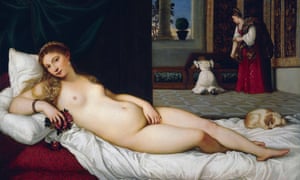From The Guardian:
The Renaissance in Italy was an era of terror and oppression more than beauty – but is its great art complicit in injustice? Should we rethink the Mona Lisa’s smile?
 The historian Catherine Fletcher has a well-deserved reputation as a specialist in 16th-century skulduggery and intrigue. In Our Man in Rome (2012) her subject was Gregorio Casali, a wily Italian fixer who served as Henry VIII’s ambassador at the papal court during the crisis of the king’s divorce from Catherine of Aragon. In The Black Prince of Florence (2017) she recounted the brief and lurid career of Alessandro de’ Medici, the illegitimate son of a Medici duke and a Moorish maidservant, who jockeyed to power as the first hereditary ruler of Florence, married a daughter of the Holy Roman Emperor, and was murdered in the course of an adulterous liaison at the age of 26.
The historian Catherine Fletcher has a well-deserved reputation as a specialist in 16th-century skulduggery and intrigue. In Our Man in Rome (2012) her subject was Gregorio Casali, a wily Italian fixer who served as Henry VIII’s ambassador at the papal court during the crisis of the king’s divorce from Catherine of Aragon. In The Black Prince of Florence (2017) she recounted the brief and lurid career of Alessandro de’ Medici, the illegitimate son of a Medici duke and a Moorish maidservant, who jockeyed to power as the first hereditary ruler of Florence, married a daughter of the Holy Roman Emperor, and was murdered in the course of an adulterous liaison at the age of 26.These are lively, well-researched books built round an interestingly dodgy central character.
Her latest offering, The Beauty and the Terror, has a much larger canvas, covering a whole sweep of 16th-century Italian political and cultural history. She begins in the 1490s – an exciting but deeply turbulent decade: the “discovery” of the Americas by Christopher Columbus and Amerigo Vespucci, the French invasion of Lombardy, Girolamo Savonarola’s “bonfire of the vanities” in Florence, Leonardo da Vinci’s painting of The Last Supper in Milan, the election of the libertine Borgia pope, Alexander VI.
read more here @ The Guardian


No comments:
Post a Comment